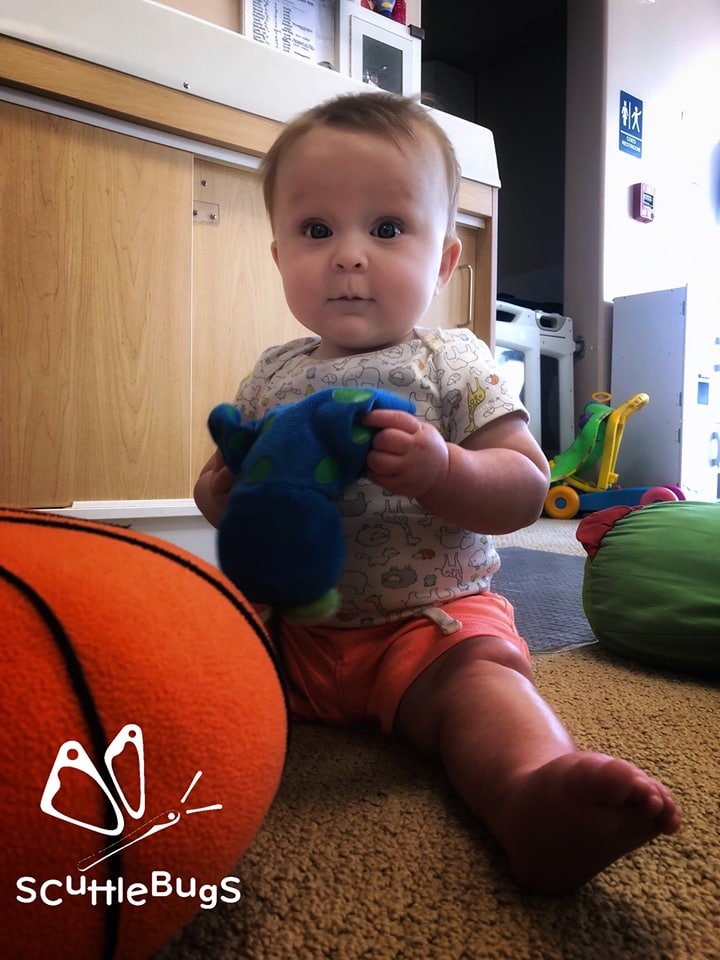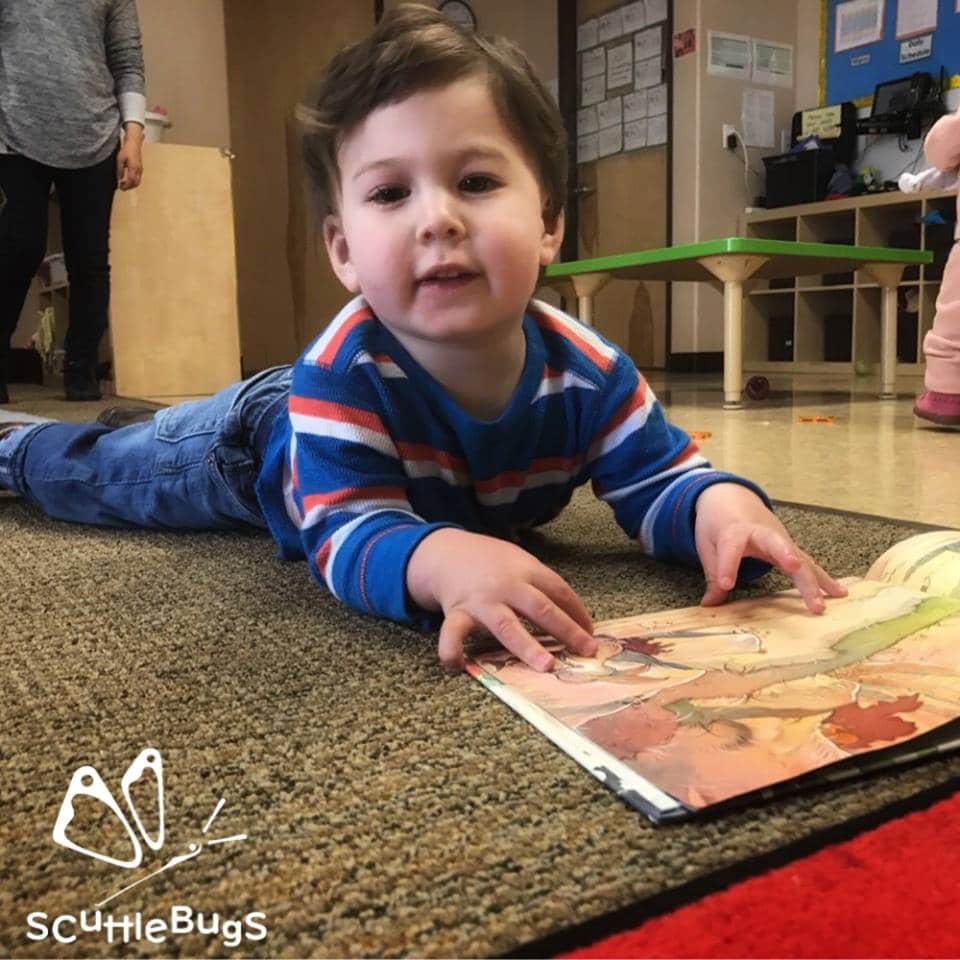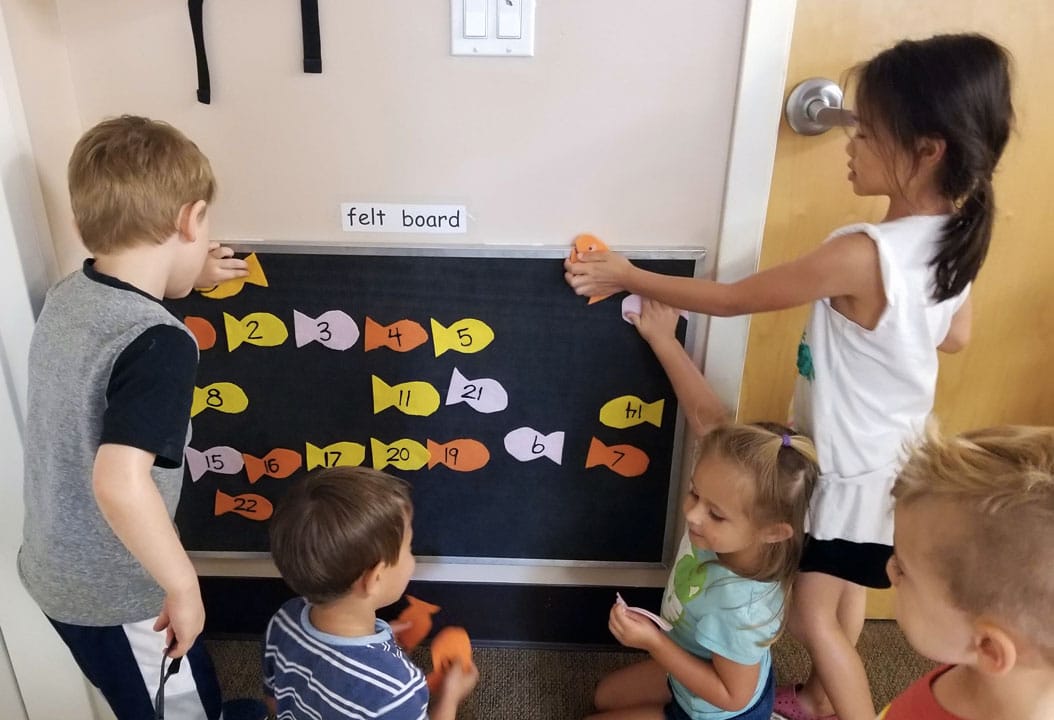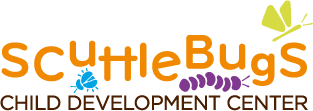By the time children begin kindergarten, they should have already acquired the general basis of their language skills. Let us be clear about one thing: language acquisition and language development are the keys to later literacy development, and many of the everyday childhood experiences provide children with knowledge and skills essential to the development of literacy.
Emergent literacy begins long before children enter formal instruction[1]. By the time they leave us here at Scuttle Bugs, they speak in sentences, understand simple stories, and simple explanations and we strive for five-year-olds to know one or two thousand words or more.
Our approach to language acquisition, language development, emergent literacy or literacy or however you choose to define it is not only holistic, it is inclusive. All of our activities, motivation, and methods of engagement, whether adult or child-initiated, are designed to enhance vocabulary. We encourage curiosity and captivate children with pleasure and enthusiasm about learning new words and sounds, playing with them and creating new meanings while also learning to use words in various contexts.
One of my favorite examples of word-learning is from Helen Keller’s autobiography. I remember reading it as a young girl, thinking she must have had some sort of superpowers. But really her wonderful teacher, and her own innate ability and desire to learn, were the keys to Helen Keller learning to read. She was hindered in the beginning as she was both blind and deaf, but she persisted and thrived becoming in due course an author, teacher, public speaker and inspiration for millions. From Helen’s autobiography [2] :

“...my teacher placed my hand under the spout. As the cool stream gushed over one hand she spelled into the other the word water, first slowly, then rapidly. I stood still, my whole attention fixed upon the motions of her fingers. Suddenly I felt a misty consciousness as of something forgotten – a thrill of returning thought, and somehow the mystery of language was revealed to me. I knew then that ‘w-a-t-e-r’ meant the wonderful cool something that was flowing over my hand. That living word awakened my soul, gave it light, hope, joy, and set it free! ... I left the well-house eager to learn. Everything had a name, and each name gave birth to a new thought.”

When children acquire formal language skills in early childhood they will have an enormous advantage in the education system for years to come. Our curriculum at ScuttleBugs allows us to exploit the acquisition of language across curriculum domains. When we work with vocabulary relating to spatial terms, we do so, for example, in relation to nature, or mathematical terms and games, or in relation to our bodies and relationships with others or through creative projects employing visual and dramatic arts. This process of overlaying learning contexts in a project based approach throughout the curriculum, enhances comprehension skills so children don’t only learn new words, they take ownership of what they have learned.
Conversely, children exposed to low-level language skills, limited vocabulary, and poor management of grammar will find themselves severely limited in their ability to express their curiosity, to rationalize their thoughts and ideas, and to engage in critical thinking/reasoning. Reading for and with children is essential in disseminating content, expanding vocabulary and exposing children to different styles of expression. All of these elements help develop linguistic fluency, a fundamental skill which will benefit them throughout their education and will be a key to communicating with, and participating actively in, the wider world and society of the future.
Therefore, at ScuttleBugs we provide our kids with a literacy-rich environment at children’s eye level including access to letters and symbols, writing centers where they can experiment with creating and mastering letters, numbers, symbols and words, and classroom libraries where they can use books to “read” and be read to. We also work with systematic explicit instruction.
This does not mean that we drill children in grammar and vocabulary. No! This means that through our curriculum, each team leader has a literacy plan - a plan which has defined, organized, developmentally-appropriate guidelines and which systematically introduces literacy skills through fun and stimulating classroom activities. Children are also provided with tools for language acquisition which are located in the classroom environment for free-play and exploration.

It is our belief that through increasing children’s opportunities to engage with language holistically across all domains of our curriculum, we broaden their horizons and experiences. We believe this will stay with them and even assist them in challenging themselves now and in the future.
[1] Bennett, K.K., Weigel, D.J., & Martin, S.S. (2002). Children’s acquisition of early literacy skills: Examining family contributions. Early Childhood Research Quarterly, 17(3), 295-317.
[2] Keller, H. (1904). The Story of My Life. (p. 22-23) New York: Doubleday, Page & Company
